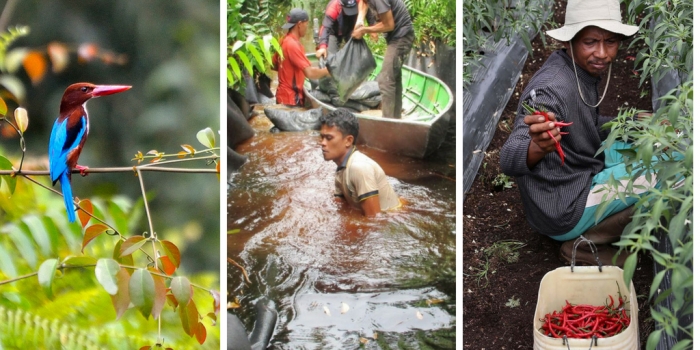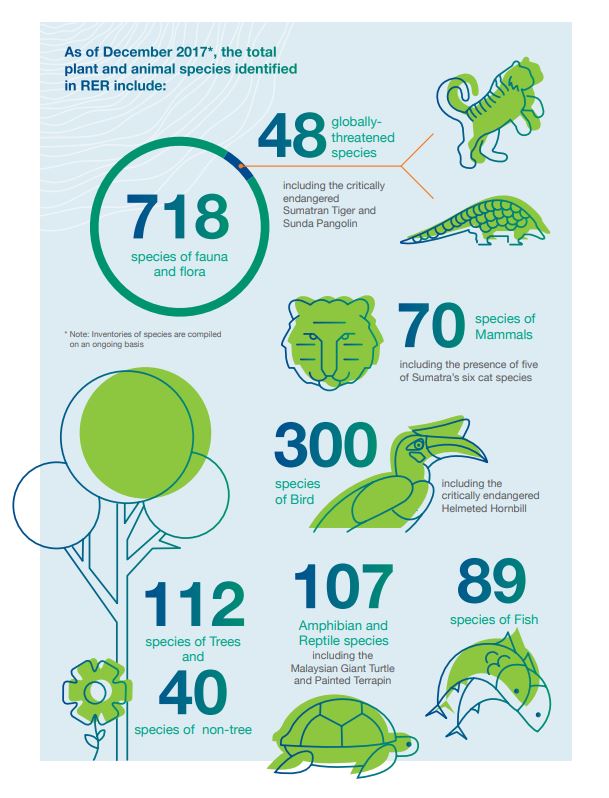Towards Sustainable Fashion: Of Scale, Change and Dialogue
"Change is now coming from Asia. Don't be arrogant. Reach out to Asia" - Erik Solheim. The themes of scale, change and dialogue were a common thread that ran through...

Latest updates on what's happening in RGE Group

Endangered species have returned. Fires have been absent for almost three years. Communities have been engaged and their members, given alternative livelihoods. These are several of the highlights in Riau Ecosystem Restoration’s (RER) first annual report, released in April 2018.
Guided by its pioneering approach of a four-phase model of peatland forest protection, creation and conservation using the landscape approach, RER is part of APRIL’s commitment to conserve one hectare for every hectare of plantation. To date, APRIL has fulfilled 83% of this goal, having 421,000 hectares of forest protected, conserved or restored vis-a-vis 480,000 hectares of plantations.
In his foreword, RER Advisory Board Chairman Bey Soo Khiang said, “These achievements illustrate our model where RER is complemented by production forestry, which provides the financial resources to fund restoration, as well as the protection provided by an actively managed ring of fibre plantations.”
Bey also noted that RER was a learning experience for everyone sharing that identifying the right tools and techniques for community engagement and ecosystem restoration did not come automatically. RER had to learn “how to best effectively implement the company’s production-protection approach in order to deliver economic, environmental and social benefits for the communities, the region, and the country,” he said.

The report also includes the following highlights:
Managing an area almost twice the size of Singapore, RER was established in 2013 and is a collaborative project that brings together private and public sector groups to protect, assess, restore and manage over 421,000 hectares of peatland forest on Indonesia’s Kampar Peninsula.
Around 17,000 people live in the area surrounding RER, depending highly on the land for their livelihood. RER, along with stakeholders, works with communities to provide alternatives to traditional slash-and-burn agricultural practices, enabling communities to live sustainably. The project is supported by long-term partners BIDARA and Fauna & Flora International (FFI).
Click here to read the full report